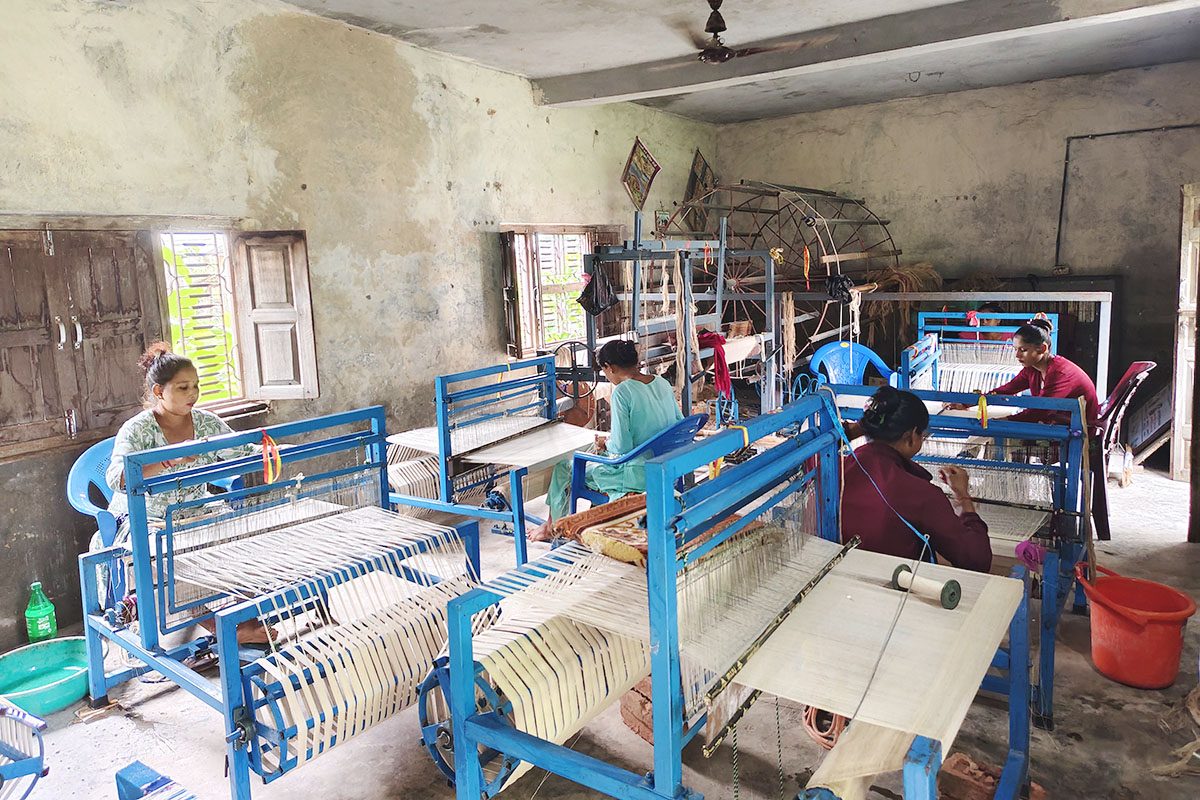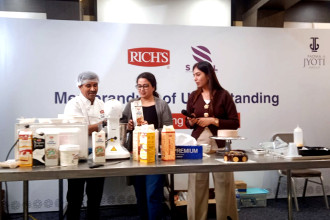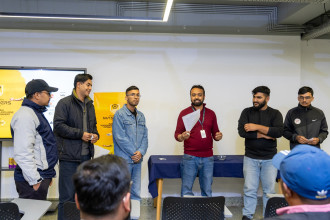
BHAJANI, KAILALI: Two months ago, Jugrani Chaudhary of Tikapur Municipality-5 in Kailali district was having a very difficult time. Although she spent her days on household chores, her family was not satisfied with her work. Chaudhary said she was under mental stress as she could not earn much from domestic work. But the story is now very different after she undertook a 25-day training programme recommended by a cooperative.
She and seven other women are now linked with an enterprise after the Dhansinghpur Ekata Samaj Saving and Credit Cooperative provided them with a power loom on a 50% grant and a free 25-day training course.
Chaudhary now weaves raw cloth from banana fibre. “Earlier, I did not believe that cloth could also be made from the banana plant. Now I am weaving raw cloth and I feel independent,” she said.
The cooperative provided free training to its eight women members. Having acquired new skills and become self-reliant, the trainees are excited to be employed. “There will be no problem earning money if we have the skills. Society’s attitude towards us has also changed,” Chaudhary added.
Similarly, Kamala Saud of the same area said, “Previously it was difficult to fill my time at home; now we are busy and scarcely have time for ourselves.”
The raw cloth produced by the group is exported to Kathmandu, where the Allo Fibre market purchases it at Rs 300 per metre.
Sakuntala Chaudhary of Tikapur-7 said, “The demand for raw cloth made from banana fibre is high. We have not been able to supply a single company’s order.” She believes they could produce more if they had a modern loom.
For the past two years, the cooperative has manufactured and sold yarn from banana fibre that would otherwise have gone to waste, and it has been facilitating exports of the cloth it produces.
Ramkrishna Chaudhary, the cooperative’s manager, said they have been unable to meet market demand for fibre yarn. “We have not yet had to pay for the raw material needed for banana fibre yarn, yet production still falls short of demand,” he said. “At this point, we have not even been able to provide yarn for ourselves.”
The women are expecting government support. They want assistance with skills training and modern machinery to make additional products from the cloth they weave.
“By manufacturing fabrics and related items, we could earn even more,” said Kamala Kumari Chaudhary. “We need more skills and support for modern machines. We can invest some amount ourselves.”
She added that hats, bags, slippers, shoes and quilts can all be made from banana fabric. Although the local government spends millions on training women in sewing and tailoring each year, Chaudhary emphasised that investment is needed to turn wasted raw materials into self-reliance.
“Tikapur is known for its bananas. There is every opportunity for citizens to become self-reliant from those bananas,” she said. “Investment is essential. If the local government can provide similar training to more women, jobs can be created independently.”
Currently, more than a thousand hectares of land in Tikapur are under banana cultivation. Once the fruit is harvested, fabric is produced from the discarded parts of the banana plant.
By RSS






